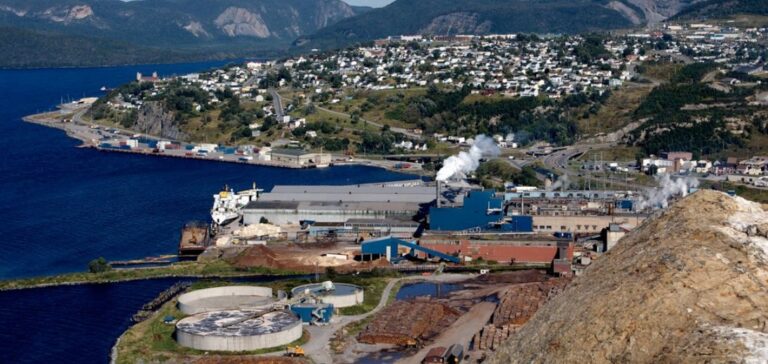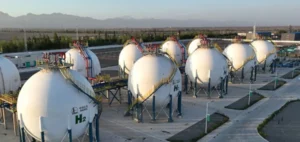CWP Global recently signed a Memorandum of Understanding (MoU) with Corner Brook Port Corporation (CPBC) to explore the creation of a 5 GW green hydrogen hub. The Gwinya project will harness wind power to produce green hydrogen and hot briquetted iron (HBI).
The main objective of the Gwinya project is to support economic growth in Newfoundland and Labrador by creating new job opportunities and stimulating local activity. The Port of Corner Brook will play a central role as an export hub for locally produced HBI destined for Canadian and international steelmakers.
Economic and industrial context
Global steel production accounts for around 8% of greenhouse gas emissions. Green HBI iron, produced from green hydrogen, is an innovative solution for decarbonizing the steel industry. Newfoundland and Labrador, with its exceptional wind power potential, is ideally positioned to produce low-cost, emission-free energy, strengthening the region’s competitiveness in the global decarbonized steel market.
The Gwinya project is part of a wider strategy to diversify the local economy, using the province’s natural resources to attract investment and create sustainable jobs.
Next Steps and Developments
Steve Delaney, Business and Development Manager (Hydrogen) at CWP Global, said that the next steps include submitting a project registration, starting the environmental assessment process and carrying out a feasibility study to assess the necessary infrastructure, logistics and economic impacts of the project.
Jackie Chow, CEO of CBPC, emphasized that this partnership represents a strategic opportunity for the region. “We are committed to working closely with CWP Global to ensure that the Gwinya project meets the economic and industrial expectations of our community,” she said.
Completion of this project could transform Newfoundland and Labrador into a leader in industrial innovation, attracting new investment and strengthening the region’s economic position.
The Gwinya project illustrates a strategic collaboration aimed at capitalizing on Newfoundland and Labrador’s natural resources to stimulate the local economy and position the region as a key player in the green hydrogen industry. This initiative could serve as a model for other similar projects around the world, marking an important step in the region’s economic and industrial development.






















